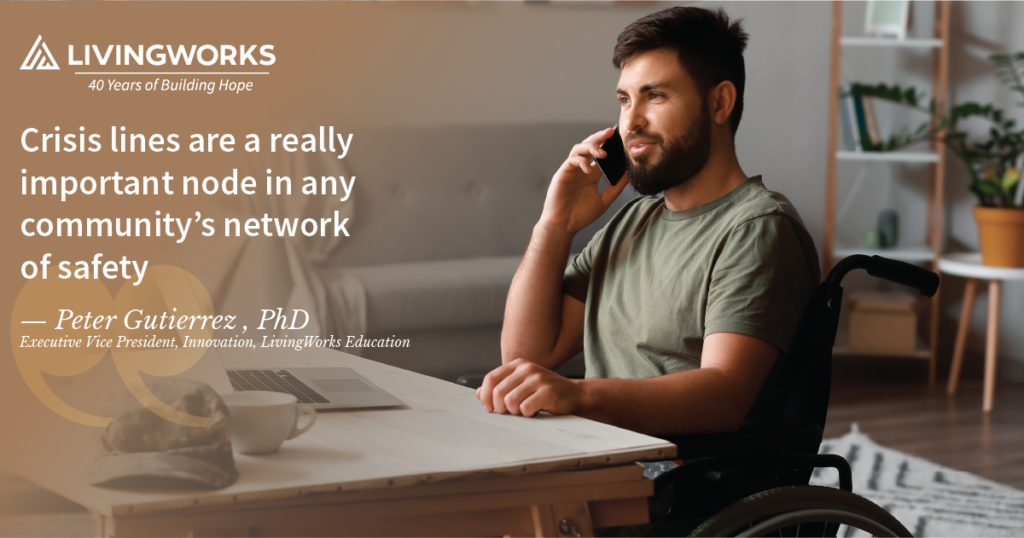9-8-8, a number dedicated to directing callers to local mental health crisis or suicide prevention services, is now available across Canada effective Nov. 30, 2023. It is available to the entire country in both English and French with 24/7, free access to resources whenever they are needed.
Although 9-8-8 is newly implemented across Canada, the three-digit number has been used in the United States for more than a year.
Dr. Pete Gutierrez, LivingWorks EVP, Innovation, believes there is still work to be done to educate everyone with the information that the number exists, which will continue to take time.
“It’ll take time and familiarity,” says Gutierrez. “It’ll hopefully be talked about in school safety information the same way that 911 is. People who call 988 and have a positive experience and talk about that with others… those things need to happen.”
Gutierrez says crisis lines are an important node in any community’s network of safety, and that having the ability to quickly connect with someone who’s trained to help is a huge benefit.
“When individuals who have been trained in LivingWorks ASIST are doing suicide first aid and are collaborating with a person with thoughts of suicide and creating a safe plan, there’s always discussion of crisis lines. Now, that easy to remember three-digit number will be a part of those discussions,” says Gutierrez. “When there is something that is very easy to remember and very simple to do that can help address the stress that comes with being in a state of crisis, it can be very effective.”

James Kelm, LivingWorks Training and Delivery Manager, Western Canada, believes the implementation of 9-8-8 means there is always a navigation tool that can connect people to resources local to where they are.
“If someone didn’t know who to call, this number no matter where you are in Canada will connect you to someone locally,” says Kelm. “What we do in LivingWorks safeTALK and ASIST is build a local resource list that we share. If you have 9-8-8 there as a central piece, that would be amazing.”
Kelm hopes the new number will provide specific resources that address the needs of every individual who uses it.
“Every locale is going to have specific things that are unique to that area that are very helpful because it was developed in that specific region for a specific purpose,” says Kelm. “When someone is having thoughts of suicide it could be because they need housing, they need food, they need connection to their community. It would be helpful to make sure a 9-8-8 link can connect you to those things.”
For those who are unable to call, or would feel more comfortable sending a text, the 9-8-8 number has a texting option available.
The Canadian Radio-television and Telecommunications Commission (CRTC) are responsible for the implementation of the 9-8-8 number, while the Public Health Agency of Canada (PHAC) will determine the entities that will manage the calls and which numbers will be linked to the new three-digit service.




